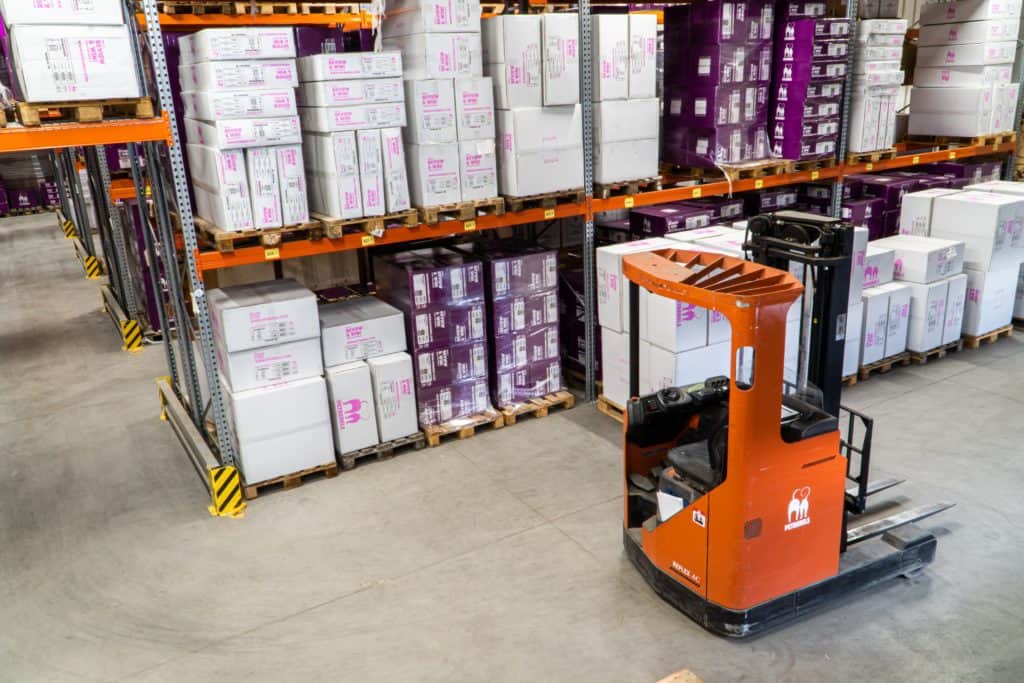🎉 Tillful is now part of Nav! Learn about business tradelines at Nav
In the early stages of business ownership, building a business credit score is a top priority. This report indicates your business’s creditworthiness to potential lenders and makes it potentially easier to secure funding—both of which are essential to growth.
The foundation for building your business credit comes down to reporting tradelines. So, it’s necessary to be aware of all your commercial credit transactions (including transactions made through a business line of credit or a business credit card) and to keep track of whether they’re showing up on your credit report or not. Many, but not all, commercial credit transactions are reported to the credit bureaus. So what can you do about it?
How to build your business credit profile
Before anything else, register your business and receive your federal tax identification number. You can incorporate or create an LLC to get an EIN. While being a registered business and having an EIN are enough for Equifax and Experian to begin gathering data, Dun & Bradstreet requires an additional step: getting a D-U-N-S number. Then, all three business credit reporting bureaus can begin gathering data for your business credit file.
The three major business credit agencies are:
Other reporting bureaus besides these three, such as Creditsafe, FICO Small Business, and LexisNexis Risk Solutions, may hold records of your business’s financial health.
These business credit bureaus may aggregate information about your company’s payment history, length of business credit, promptness in payments, and more. They also factor in risks such as liens and bankruptcies.
Commercial transactions make up a large portion of these business credit scores. As Mark Stewart, in-house CPA at Step by Step Business, says:
“I have had several situations where a transaction was not reported due to omission. However, we initiated an immediate action to report the transaction, given that the transaction does not reflect on your credit score until at least 30 days after the report has been made.”
What business credit reporting agencies do
Before we get into the nitty gritty of commercial credit transaction reporting, let’s review what business credit bureaus do and the information that they gather.
While the agencies reporting on business credit are similar to those that monitor your personal finances, there are some key differences. Businesses aren’t entitled to credit report privacy, unlike consumer credit reports. Plus, the business credit reporting firms don’t have to provide your business credit report for free.
Pro tip: Get your free business credit report from Tillful (plus your Experian score at no extra cost when you link your Tillful Score in the app).
The Fair Credit Reporting Act applies only to consumer credit reports—meaning that you have to give permission for a business or other entity to access your personal credit report.
But anyone can access your business’s credit report. Specific types of business information in the report varies by agency, but a few types of data they may collect include:
- Company size
- Credit utilization
- Payment history
- Liabilities
Business credit scores vary in their ranges. Typically, the highest scores represent the lowest amount of risk posed by lending to the business (and vice versa). Agencies examine business data that illustrates a company’s perceived financial stability. Your business credit score can impact your creditworthiness, interest rates, credit limit, ability to get a small business loan, and more.
What to know about Experian small business credit reports
An Experian business credit report includes the following details about your company:
- Background information including owners, parent companies, and subsidiaries
- Company financial information
- Credit score and risk factors
- History of banking, trade, and collection
- Information on tax liens, judgments. and bankruptcies
- Uniform Commercial Code (UCC) filings
Experian also has an Intelliscore Plus score, showing promptness of payments to creditors.
What to know about Equifax business credit reports
Similarly to Experian, here are some of the essential pieces of data that will be included in your Equifax business credit report:
- Basic company profile with official name, phone numbers, and other contact information
- Credit summary, which details financial transactions with banks, suppliers, and service providers
- Public records of any liens, judgments, or bankruptcies you have experienced as a small business owner
- Business credit risk scores
- 12-month payment trend along with comparison to industry norms
What to know about Dun & Bradstreet business credit reports
Dun & Bradstreet also breaks down factors in a company’s credit history that indicate a level of risk.
CreditSignal, through Dun & Bradstreet, is a free small business credit monitoring option that provides a bare minimum of information to help business owners examine their business credit. It enables the business owner to examine four scores and ratings for 14 days: PAYDEX, Delinquency Predictor Score, Financial Stress Score, and Supplier Evaluation Risk Rating.
This free credit report service also gives you notifications of inquiries into your business credit and changes to your scores and ratings.
More robust business credit monitoring is available for a fee of either $15 or $39 monthly. These paid versions provide more access to scores and ratings, as well as explanations of your business credit scores.
Not all commercial credit transactions get reported to business credit reporting bureaus.
“'Business credit transactions are a kind of transaction that does not involve money at that present time. Rather, a kind of agreement is made for cash to be exchanged later. Because of this, whenever a business transaction is settled, it should be reported so that you know how much you are owed or will owe,” says Ashley Chubin, COO of legal cannabis delivery service Flyhi.
Although agencies like Dun & Bradstreet and Experian exist to report credit activity, it's important to review the accuracy of these reports and keep them up to date with relevant information as your business changes and grows. There may even be inconsistencies across all your different reports! This doesn't always have to do with errors either; it could just be that one or more of your credit accounts isn't reporting to all three bureaus, creating discrepancies. Strong business credit will enable your business to move forward with important funding and other growth processes—and accurate commercial transaction reporting helps this.
The Consumer Financial Protection Bureau (CFPB) examined approximately five million de-identified credit records from the nationwide credit reporting agencies (NCRAs). Their research divulges the fact that only a small fraction of lenders provide credit information to NCRAs.
“At least 89% of banks are not furnishing information on commercial loans to consumer credit bureaus,” says the CFPB study.
This may be simply due to vendors and other entities not wanting to spend time on reporting transactions.
How to ensure more of your commercial credit transactions are reported
Establishing your small business with an EIN is a good start to building helpful business credit. This also distinguishes between your personal and business credit scores. Verify your company information is all accurate as well and check business credit activity periodically (this way you can catch errors or fraud in the act).
Be sure to check your small business information at several of the commercial credit reporting agencies. Since they monitor and report different aspects of a company’s financial fitness and creditworthiness, it’s important to build a well-rounded picture of your business through multiple agencies.
You can ask various vendors and other companies you work with to report commercial transactions. Since research has shown that a large amount of commercial credit transactions aren’t being reported to Dun & Bradstreet and the other business credit bureaus, being proactive helps.
Talk to the suppliers, vendors, and anyone else you make payments to about reporting those transactions to at least one of the business credit reporting bureaus. Obtaining positive trade references (aka trade lines) will also go a long way toward building business credit—although they shouldn’t make up the entirety of your score.
Always follow best practices in your business financial transactions. On-time payments, made in full, build up your credit rating over time so that any lender would not fear taking your company on due to credit risk.
Using a business credit card could also have a positive impact on your business credit profile. Business credit cards usually report transactions to business credit reporting agencies.
As Mike Walsh, CEO of CloudmyBiz, says, issues can arise if you don’t report transactions right away.
“Unfortunately, there was an instance that we heard of from another company of customer details being lost, meaning that an invoice could not be sent. Thankfully they managed to find a way to contact them again before the agreed date, but all of this would have been resolved if it was reported earlier.”
Last word on commercial credit transactions
Building up a solid business credit score to help you secure business financing is essential to success. If possible, be sure that you’re getting the benefit of your commercial credit transactions reported to the business credit bureaus. Talk to credit providers to get them to report your payment history and build your business credit until it’s robust.


